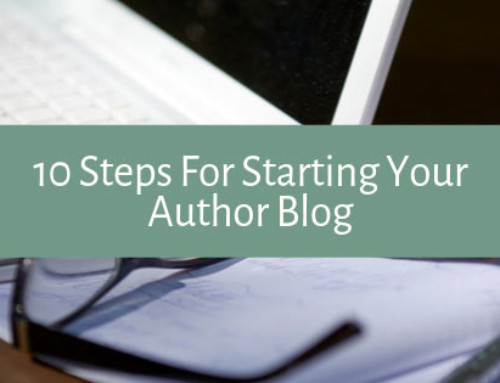Many authors struggle with marketing their books. Our marketing strategist is here to help you avoid common marketing missteps authors make with this Q&A.
What’s the Number One Piece of Advice You Find Yourself Giving Authors?
This is two fold. The most basic aspect of marketing is to know your target audience (and no, it’s not everyone), but equally important is not to wait and see how sales go before deciding to do any marketing. You will absolutely need to do marketing, and waiting too long just makes it that much harder to build momentum. Once your publication date has passed, there is nothing to announce about your book, and any excitement about something new is lost, so start right away.
Of course, the bottom line (i.e., the difference between making sales and not making sales) is, if lots of readers in your target market want to read your book but they never hear about it, they can’t decide to buy your book—and the way they hear about your book is through marketing.
What Are the Biggest Misconceptions About Book Marketing?
What I hear time and time again is that authors want to measure the success of their marketing efforts directly with sales for the same time period. For example, if we run a month-long Facebook ad campaign, many people judge whether the ad campaign is successful or not by checking their sales for the same time period. The problem with this is that book marketing is a marathon, not a sprint.
Put yourself in the mind of the consumer to understand why. Most people don’t see an ad once and immediately buy the product. Even if someone sees the Facebook ad for your book in their feed, and clicks over to the website, they still may not purchase the book yet.
Repetition and recognition over a longer period of time makes them much more likely to purchase. It may not be until the third or fourth time they see an ad, hear your book mentioned, or see it on another platform such as Goodreads that they finally think, I keep hearing about this, I should just get it, and then buy it. This could be weeks or months later after the initial month-long ad campaign. This is also why it’s important to be marketing on more than one platform, including hosting in-person events such as readings or signings.
Is There a Difference Between Marketing Traditionally Published and Self-Published Books?
Much of book marketing is universal to all books, but there are some major differences. For example, the mainstream media is unlikely to publish reviews of self published books, and this is especially true for debut fiction. These organizations are biased toward literary fiction, and while this may seem unfair, it’s not something you can change, so barking up this tree isn’t a wise use of your time and effort. Read the NYT book review section for several weeks, or even other major newspapers in major cities, to see what they cover. It’s rare to find a self-published work.
Media coverage for nonfiction works is slightly more likely, even in the self-published world, but that depends on the timeliness of the subject matter and the author’s notoriety, but even then I’d still recommend starting smaller with local publications such as community newspapers. If you live in a small city, you probably have a better chance of getting a mention in your local paper.
Is It a Good Idea to Give Your Book Away for Free?
Absolutely. While the final end goal of marketing books is to generate sales, getting reader reviews is actually more important at the beginning (at least until you have a decent number of them). Because good reviews (and even bad reviews) can help potential readers decide they want to purchase your book, giving the book away to readers who are likely to post an online review is the easiest way to accomplish this. Book bloggers, and others likely to post reviews, often look for new releases on Goodreads and Netgalley, so giving your book away on either of these platforms will likely get some action.
How Many Books on Average Are You Working On and How Do You Keep Track of Everything?
I’m usually actively working on at least ten books in some capacity, often more. Our system does a great job of keeping me on track, but I’m somewhat old school, and have an elaborate Post-It system on the wall by my desk.
What Makes a Book Easy or Difficult to Market?
This depends on the goals of the author and the platform we’re marketing on, but the easiest and most successful strategies always involve a well-written, well-edited book that’s easily classifiable by genre, and communicates that genre clearly with the book cover and synopsis. And, of course, a well-defined target audience.
On that same note, books by relatively unknown authors that attempt to defy genre or other book conventions tend to confuse people, and often get passed over. While artistically expressing yourself in an unconventional way is interesting, it’s a lot to ask readers to trust they’ll enjoy a work like this, when they’re not familiar with you or your writing.
Marketing Involves a Lot of Positivity and Enthusiasm as You Proverbially Shout from the Rooftops About New Releases. How Do You Keep Energized?
Like most people who love books, I enjoy a fair amount of coffee, but mostly it’s the infectious enthusiasm of the creative and innovative authors I work with that keeps me excited and motivated. It’s often a dream come true for people publishing their books, and I’m fortunate to be helping such driven individuals get the most exposure they can for their work.
Discover more from Mill City Press
Subscribe to get the latest posts sent to your email.














Leave A Comment